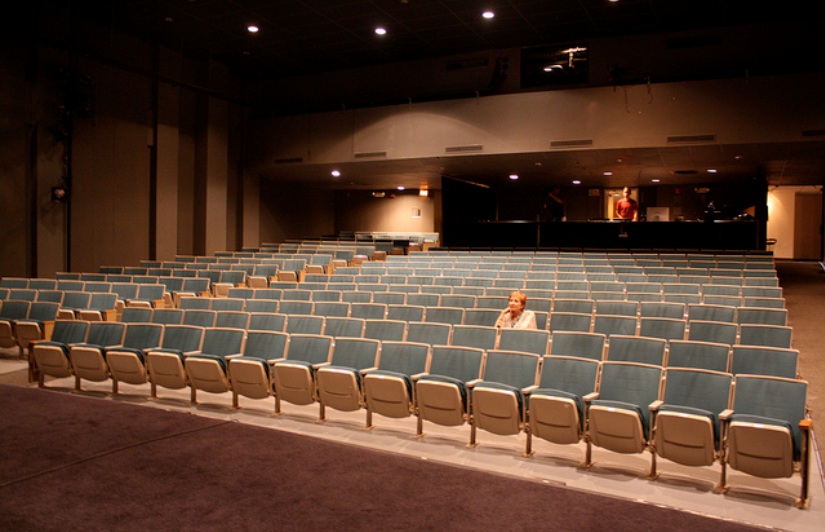In today’s Wall Street Journal “Sightings” column I report on a conversation I recently had with a stage director who blew the whistle on why regional-theater programming is growing less interesting. Here’s an excerpt.
* * *
Not long ago I spoke to the artistic director of a well-regarded theater company somewhere in America that’s feeling the pinch. No names: I’ll call her Ms. X for the sake of convenience, though “she” may or may not be a woman. In addition to running the company, Ms. X is a stage director of high seriousness, one whose work I’ve praised in the past. Yet her company is inching away from the kind of programming that led me to start reviewing its shows in the first place. I didn’t ask why–we were talking about something else–but Ms. X volunteered an explanation, and though I wasn’t taking notes, this is more or less what she said to me:
 “I’m in the ticket-selling business. If I don’t sell tickets, we shut down. We used to do it by selling subscriptions. That gave us money up front, and it also made it easier for me to do serious work, because people were buying a five-show package, and they trusted me to give them a well-chosen, wide-ranging package each year. We’d do a comedy, a new play or two, a classical revival, maybe a couple of modern classics. August Wilson, Tennessee Williams, that kind of thing. Sometimes they didn’t like all five. Maybe they never did. But they still went home feeling like they’d gotten a balanced diet, they’d done their duty to theater. And that used to matter to people. It really did. They thought that seeing good shows made you a better person.
“I’m in the ticket-selling business. If I don’t sell tickets, we shut down. We used to do it by selling subscriptions. That gave us money up front, and it also made it easier for me to do serious work, because people were buying a five-show package, and they trusted me to give them a well-chosen, wide-ranging package each year. We’d do a comedy, a new play or two, a classical revival, maybe a couple of modern classics. August Wilson, Tennessee Williams, that kind of thing. Sometimes they didn’t like all five. Maybe they never did. But they still went home feeling like they’d gotten a balanced diet, they’d done their duty to theater. And that used to matter to people. It really did. They thought that seeing good shows made you a better person.
“Then the subscription model fell apart, for a lot of reasons. Some subscribers got too busy, or too old, to commit in advance to five shows on specific dates. Some of them couldn’t afford to buy all five in one pop anymore. And young people never have gotten in the habit of subscribing to anything. On demand, that’s their motto. Anyway, it all added up to the same thing: We had to start selling individual shows instead of a package. When that happened, everything changed. Instead of trusting us to give them something good, people started playing it safe, and we had to play safe with them. We didn’t have any choice….”
* * *
Read the whole thing here.
Terry Teachout on the arts in New York City
An ArtsJournal Blog
